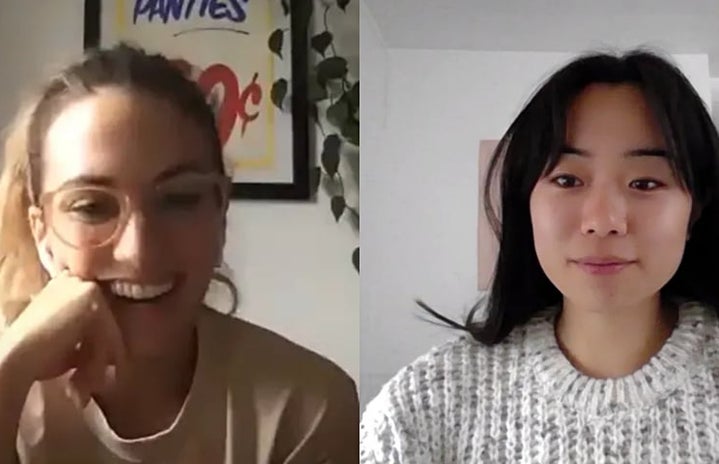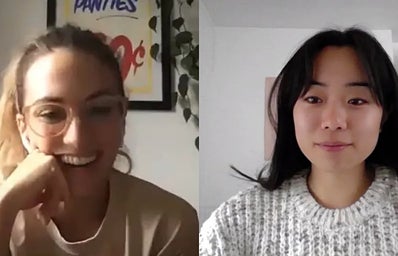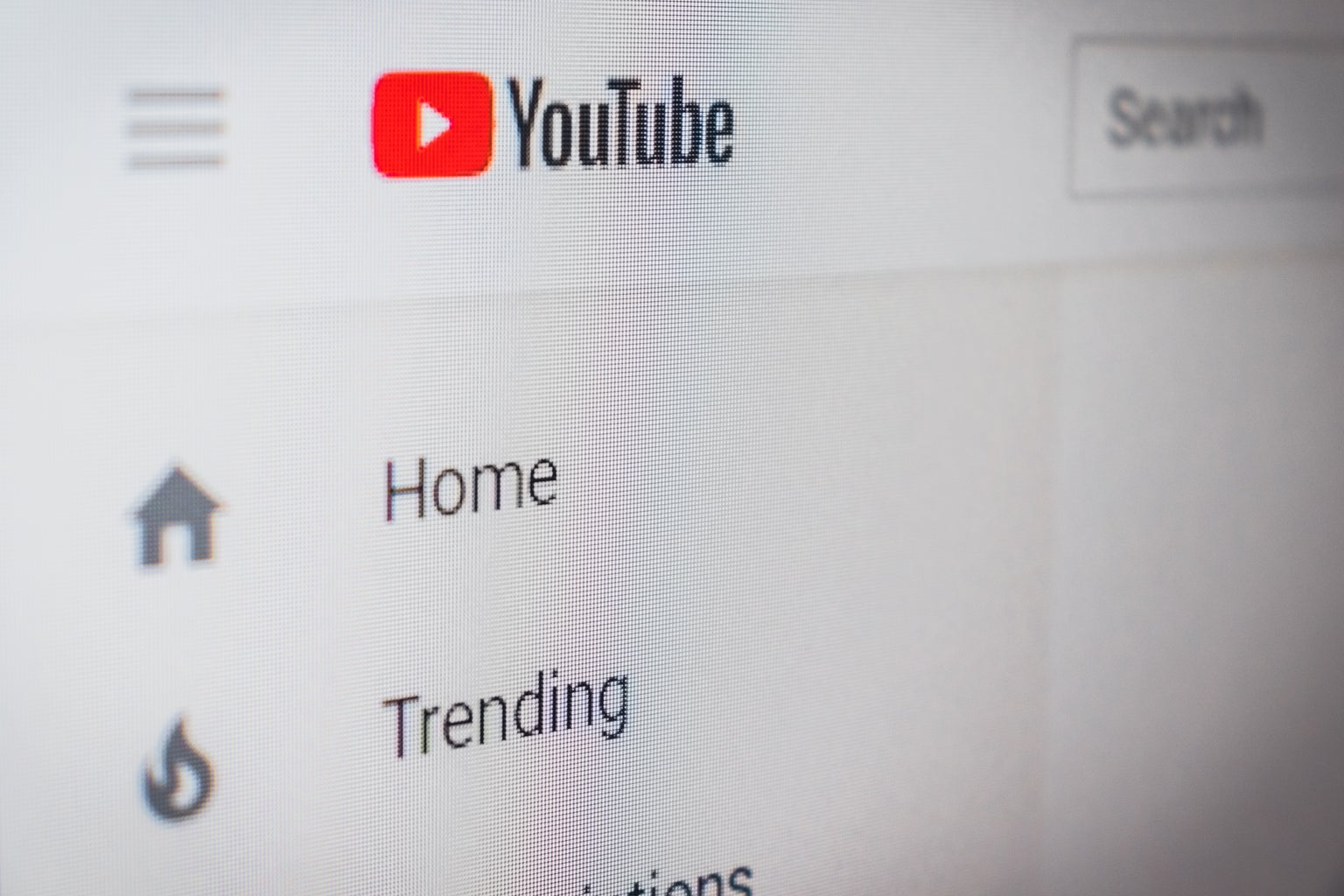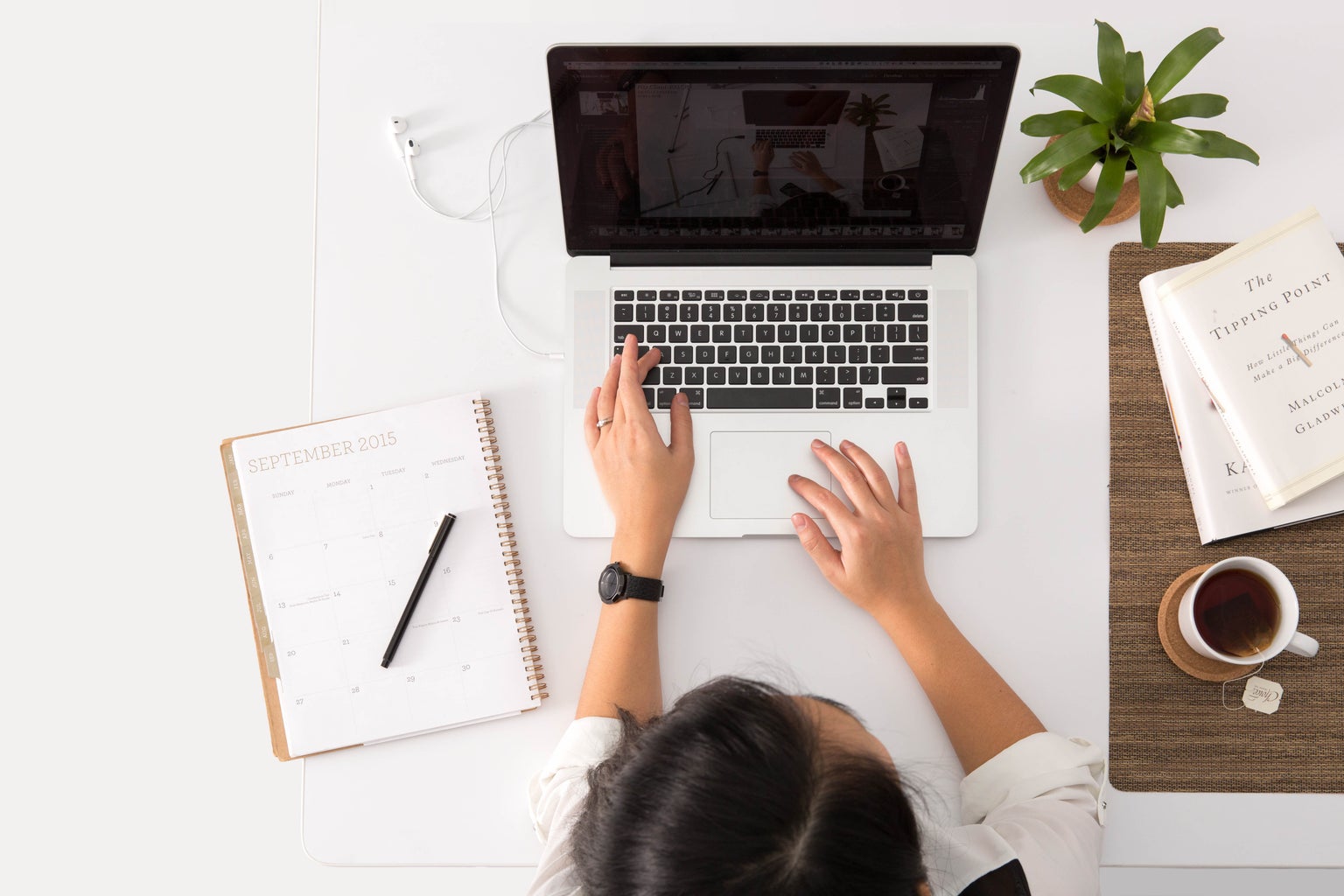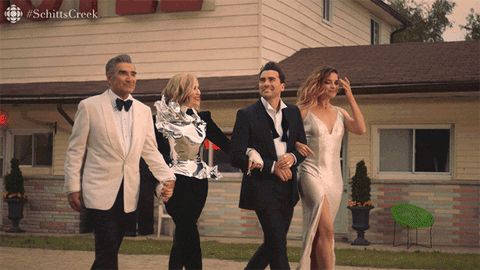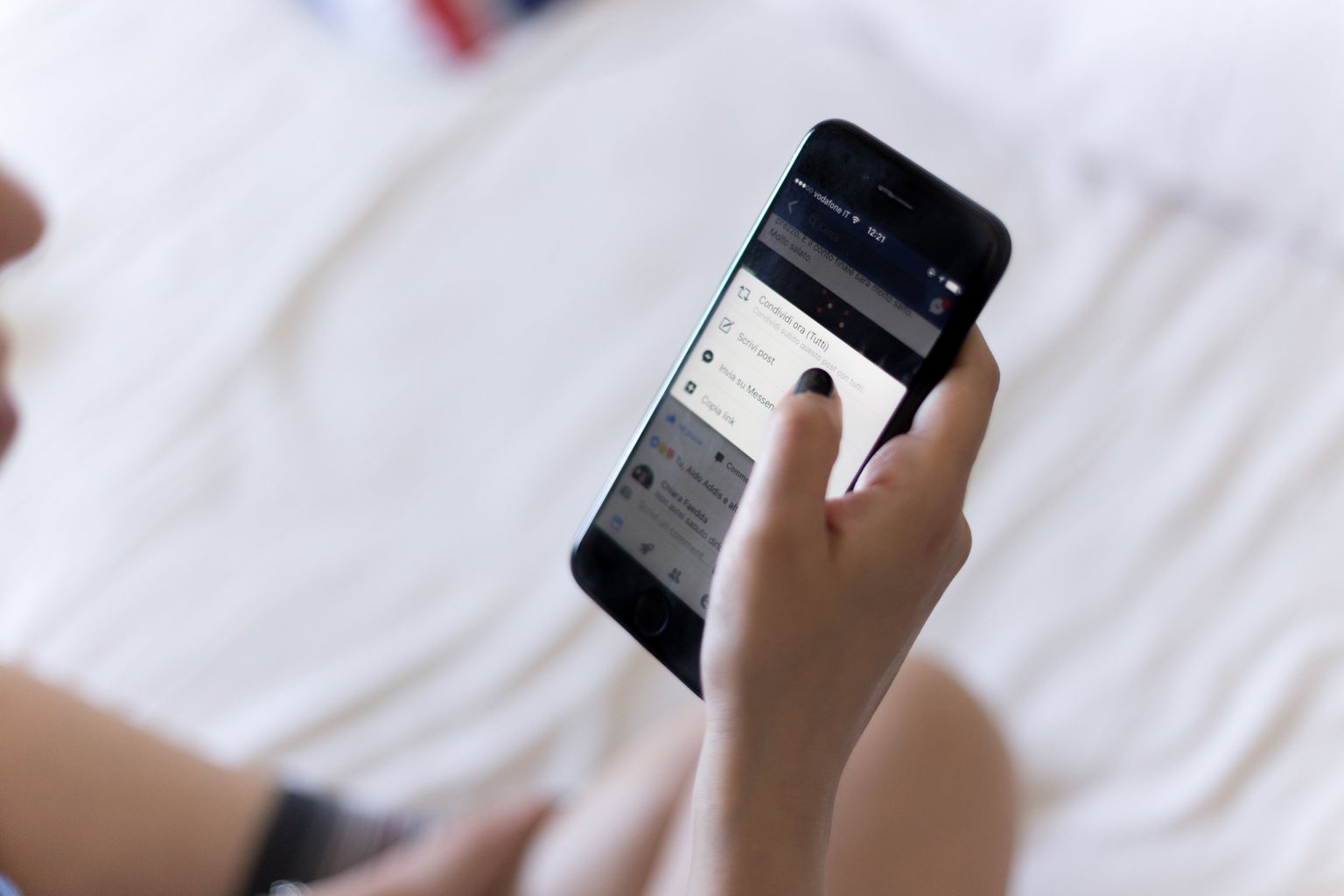This fall, I had the pleasure of sitting down with the one and only Julie Nolke, an incredibly talented comedic actress who blew up on YouTube this year with her “Explaining the Pandemic to my Past Self” series.
I’ve been a loyal subscriber for well over a year and I continue to adore her for her sharp writing, brilliant acting, and witty humour. I had butterflies the morning of our interview, but if you’re a fan like me, you’ll be happy to know that Julie is even lovelier and more wonderfully down-to-earth than we could possibly hope.
L: I absolutely love your message that women are funny, because comedy has traditionally been a very male-dominated genre. Do you feel like the gender gap in comedy has affected your career?
J: Oh, man. I mean, I’m lucky that there have been so many amazing female comedians who kind of paved the way for me, so I think I’ve probably felt the gender gap a lot less. I don’t do stand-up comedy and I know that’s one domain that’s still pretty divided, but for me, the biggest thing I notice that I kind of get disappointed with is— I like to think that my comedy stands alone, that people can recognize me as just a writer and an actor, but that’s not the way the world works. I still get objectified in that there’s a lot of commentary on my body, which a lot of fellow comedians and writers won’t necessarily have to deal with, and I always find it a little bit disappointing that my work can’t stand alone, that it always has to come back to appearance or me being attractive or unattractive. That’s what I notice most, but again, it’s more about trying to make something funny that I enjoy. I really try and not to focus on how the audience is going to take it because I think I would just be in my head too much about it.
L: What does your creative process look like from the conceptualization of a video to writing a script to filming and editing?
J: I make weekly content, so I’ve really streamlined [the process]. Right now, we’re working about a month in advance, but it takes me, you know, maybe a few hours to write a script. I’ll come up with an idea and the notes app on my phone is just full of one-liners that I’ll think of, and some of them will turn into sketches. Once a week I’ll sit down and go to write sketches, so I’ll open up the notes app on my phone and I’ve got a very detailed corkboard behind me that has all these individual Post-its of ideas, and I’ll say okay, I’m going to try on that one and see if I get a script out of it. That usually takes me a few hours, and then we shoot right away! The beauty of YouTube is that you can’t aspire for perfection because there’s just no time, so I love that you just have to be okay with crap ideas and try to make them work, and that’s really exciting as a creative person because I feel like sometimes we get bogged down with wanting to do our best work or wanting to be absolutely perfect, and yet it’s also a skill to say, well, let’s just make this idea work and see what happens. Some of them are crap and some of them are good, but it’s a fun challenge weekly.
L: You’ve been experimenting with a lot more characters and different accents recently. Where do all of them come from?
J: I’ll just say that the genesis of my YouTube channel was that I wanted to practice acting. I really was not successful in the traditional acting industry. I really struggled to break in and still kind of do, so I wanted to create a portfolio online that showcased my work and what I had to offer because I knew that I was good enough to work as an actor and a writer, but that people just weren’t seeing me. That’s my massive ego talking. (One of the many times she made me laugh.) I still kind of honour that original mission statement today, so I still like to utilize YouTube as a place to practice. Even though it is kind of its own career in itself and I’m very proud of the audience and platform that I’ve created, it’s still a place of trial and error and I love it to be that place, and so, you know, if there are accents that I’m inspired by or characters that I’m inspired by, I’m like, could be funny, maybe not. I’ll make a YouTube video and we’ll all find out together.
L: Sitcoms, stand-up, and sketches are such bright spots in my life. Do any particular artists or pieces of media inspire you and your work?
J: Tons and tons! It’s more in the traditional film and TV industry because I think that’s what I’ve held on such a high pedestal for so long, even though YouTube and online creation are just as valid, [but] Phoebe Waller-Bridge, Issa Rae, Kristen Wiig, Tina Fey—all those incredible women who are making content that’s very truthful and honest and grounded, but also extremely funny. Those are all people that I look to and go to, wow. You know, Kristen Wiig really pushed the envelope with Bridesmaids and having true pain integrated with sidesplitting humour, and I want that to be this week’s challenge. I want to try to talk about something that’s really grounded and see if I can make it funny.
L: With shows like Kim’s Convenience and Schitt’s Creek, Canadian comedy has definitely been on the rise over the past few years. Do you see yourself playing a part in that?
J: For sure! Canadian comedy is so interesting because it has these ebbs and flows. We did have SCTV, which was huge, and we have a lot of amazing Canadian comedians that unfortunately had to go down south — like Jim Carrey, Mike Meyers and Eugene Levy — and so Canada has always been a wonderful hub for comedy, but we’ve not necessarily had our own community here where comedians could stay and actually make a living. So yeah, you’re absolutely right, Schitt’s Creek, Kim’s Convenience, and Workin’ Moms have all paved the way to make a more sustainable industry up here, and I’m honoured to be participating in it. I actually have a role in a new CBC show called Run the Burbs, which I’m very excited for! I believe it’s coming out in February and it’s with Kim’s Convenience’s Andrew Phung, who played Kimchee on Kim’s, and he’s the star of the show. We’re having such a blast filming it, but it’s truly such a beautiful community, and unlike the States, up here in Canada, it’s so much more of a family and so much more supportive because it’s a small, niche community, and we’re all just kind of struggling together. So there’s a lot of support here that I haven’t necessarily found in the States.
L: You’re clearly brilliant at sketches and you’ve been doing television recently as well. I know you said you don’t do stand-up, but would you ever consider it?
J: Stand-up is on my bucket list, absolutely! I want to do it so bad and I’m so terrified—like I’m worried I’m going to pee on stage is how terrified I am. (Another of the many times she made me laugh out loud.) I don’t know why. I think I’m funny enough, but I’m not a very good live performance person. I don’t know. But yes, I do want to do it, I’m gonna say right here, I will do it in my life at some point, I just don’t know when.
L: Going back to your sketches, how would you describe your own content? What would you say are the defining features that make your videos so distinctly you?
J: I’m a huge fan of really quick dialogue and my mom says that my comedy is very cerebral. I don’t know what that means, but I think she’s onto something in that I like creating comedy where it feels like, as an audience member, you have to kind of figure it out like the jokes are multilayered. I enjoy watching comedy like that, so I think that’s probably a little something, and to what I said earlier, I like comedy that’s grounded in something real. I have this series with a mirror character, where I’m talking to my drunk self—(me, interrupting: I love Mirror Julie!)—oh, I love her too! And she’s such a great vehicle for talking about things that I’m actually concerned with. We’re able to talk about something that matters to me, but in a way, that’s very lighthearted and fun. So that’s the goal. That’s what I try to do with my content for sure.
L: Are there any videos in particular that you’re really proud of?
J: Just about all of them! I’m really proud of the ones where I—well, this is going to sound strange, but the video where I had explained the pandemic to my past self went viral, and I think it was an easy choice for me to continue to make pandemic content or viral-worthy content, and I’m proud to say that I didn’t. I didn’t want to be a flash in the pan; I didn’t want to be a one-trick pony. I wanted to continue to challenge myself and honour the original mission of the YouTube channel, which was to make my writing better, become better as an actor, and just overall push the envelope on the type of content that I could create, so I’m really proud of this video that came out that really performed horribly—I think it was just called ‘Climate Change’? (It’s called ‘Fighting Climate Change (funny!)’ and it’s absolutely hilarious!) I’m proud that I made it. It’s a different format than what I usually make and the characters are different. I think it’s clever and funny and silly and stupid, but also a bit of a commentary on the greenwashing that all of these corporations do, and I was like, this is really good. Nobody’s going to see it, but I’m very proud of it.
L: I know you said you try not to focus too much on how your videos are received, but you do like and reply to comments on your videos sometimes! What kind of responses do you like seeing to your videos?
J: I mean, I like attention. I still am a performer and entertainer at heart, so I definitely love audience interaction. An audience response I love is when people get it. I love when people say that I made their day because I think that’s honestly the whole purpose of comedy. I’m just here to entertain, I’m here to give you a little bit of escape from your day, give you something to chuckle about. So that’s really all I can ask for, when people interact with me and they say I affected them in some way or another, or they said I was awesome. I like those too.
L: You’ve been collaborating with more creators this year, including Trey Kennedy, who always cracks me up. Is there anyone that you would like to work with in the future?
J: Absolutely—tons of people! I would love to cross over the film and TV industry with YouTube. I think that would be fun. There’s some amazing comedians that I’d love to work with, and there are also some incredible YouTubers, a lot of them being American, I want to work with. There’s Gus Johnson, who’s a really funny, slapstick-style guy in L.A., and Ryan George, who I worked with last year. He’s based in Montreal and I’d love to go visit him again. [There were] a lot of things that I wasn’t able to do because of the pandemic, but now that things are hopefully opening up more, I can spread my wings a little bit and work with more people. I don’t know if you’ll ever include this (I did!), but there’s an incredible creator named Brian Jordan Alvarez. He’s an actor and writer in Los Angeles and he made this series called [“The Gay and Wondrous Life of Caleb Gallo”] and it is so good and so funny, and that is a man I’d love to work with. He’s not even a YouTuber—he just made this series and put it on YouTube, and it’s one of the best things I’ve ever seen.
L: You’re almost at one million subscribers now! Do you feel like parts of your life outside your career has changed since your pandemic videos went viral?
J: Oh, for sure. I wish I could say they didn’t, I wish I could be like, oh, it’s not about the audience, the notoriety, the fame, but it totally is. It’s so stupid. In terms of my living situation, I still live in a small Toronto apartment, but once you have more eyeballs on you, it’s easier to get a job in film and TV, it’s easier to collab with other YouTube creators because now you have something to barter with, which is an audience. You get paid more from brands—I mean, lots changes, but I would like to think and hope that my content or my attitude towards creating content hasn’t changed. I still want to honour making really good quality stuff, making stuff that isn’t copying what’s on trend. I would much rather be ahead of the curve or behind it than catch up with what’s going viral right now.
